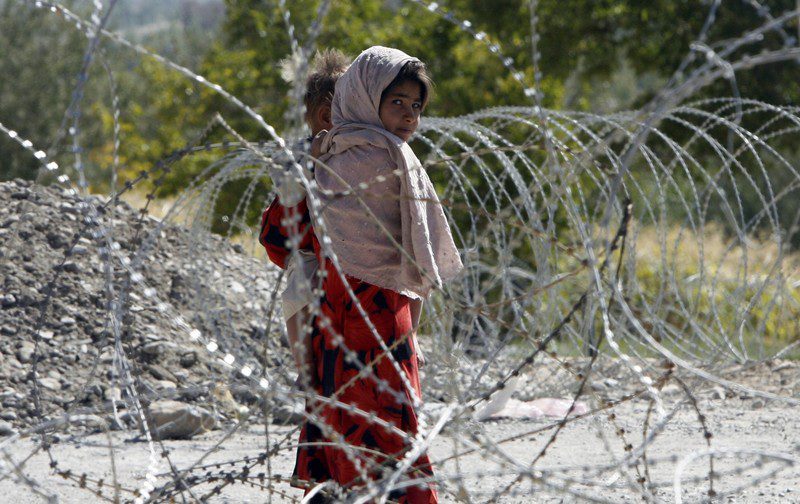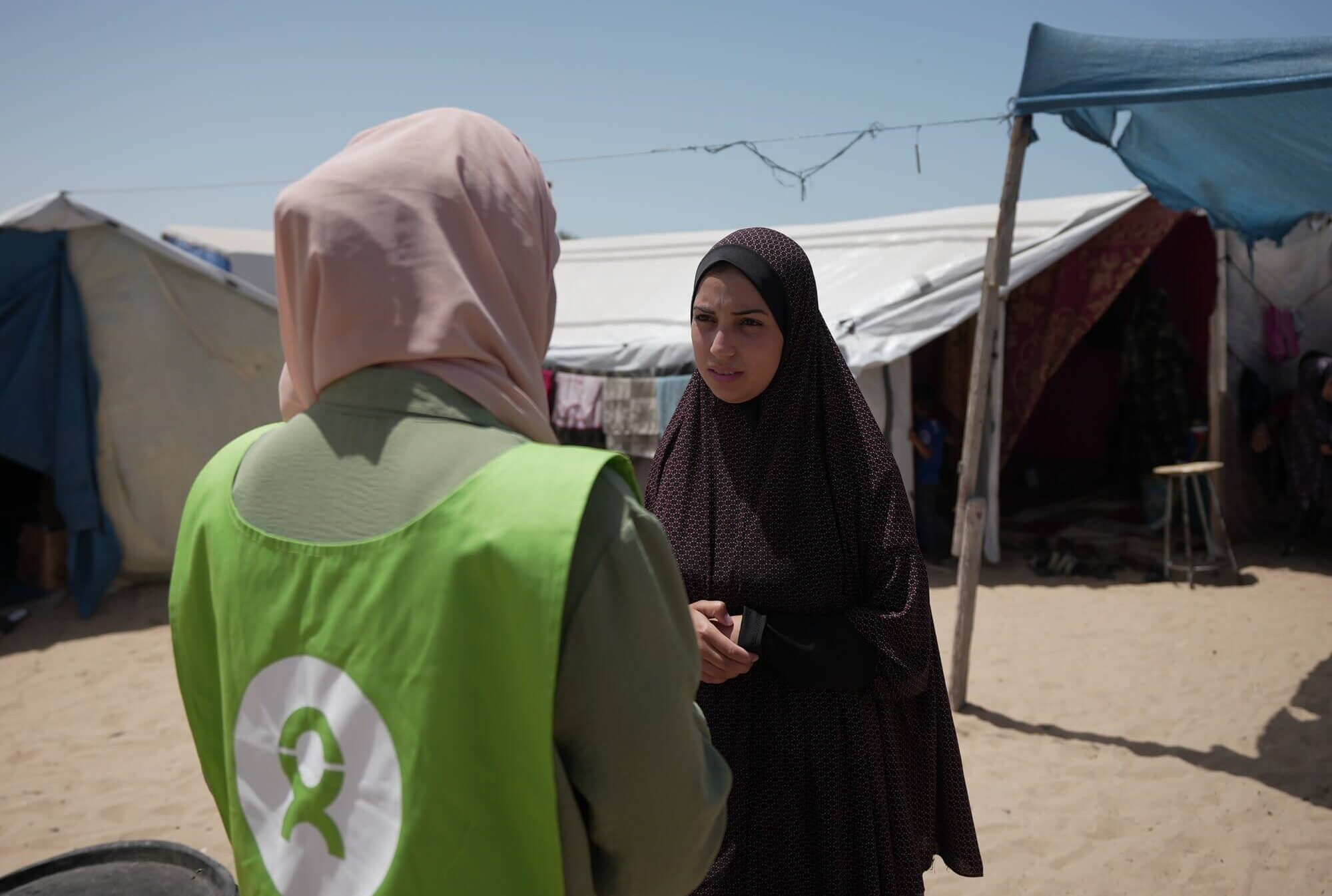Australia is now a non-Permanent Member of the UN Security Council.
After 26 years on the bench, on 1 January 2013 Australia will begin its two-year membership of the UN Security Council. Having worked so tirelessly to secure this seat, Australia now has a rare opportunity to play a key role in addressing the great security challenges of our time. Australia should focus its term on improving the way the Council acts to protect civilians – ordinary women, men and children whose lives are torn apart by conflict around the world. That includes improving the effectiveness of UN authorised peace operations and addressing the proliferation of arms.
Find out how Australia can make a real difference on the Security Council for people caught in conflict by reading Oxfam’s report
Here are 10 things you need to know:
1 – What does the UN Security Council actually do?
The Security Council is the most powerful body in the UN system, responsible for maintaining international peace and security. It has the power to address any dispute or source of international friction, working with states to uphold their responsibilities under International Law, taking measures ranging from recommending peaceful solutions and supporting conflict mediation efforts, to international sanctions and peacekeeping operations or authorising other forms of military action.
2 – Who sits on the Security Council?
The council is made up of five permanent members – USA, Russia, China, France and the UK – that each has the power to veto Security Council Resolutions, except on matters relating to rules of procedure. There are also 10 non-permanent members who are elected for two-year terms. An election is held every year for five of the 10 non-permanent positions. These seats rotate among five regional blocs to ensure broad geographic representation on the council. Australia will have a seat on the Council from 1 January 2013 until 31 December 2014.
3 – Why is this important to Australia?
A seat on the Security Council is an historic opportunity for Australia, which has not sat on the council for 26 years. Security Council membership gives Australia an active role to play in addressing key issues affecting international peace and security, including within our region and conflict-affected countries where Australia is playing a direct role on the ground, such as Afghanistan.
This will strongly benefit Australia’s national security and foreign policy interests by strengthening the effectiveness of the UN system, in turn promoting trust, cooperation and collective global security. It can also enhance Australia’s reputation as a good international citizen, with the benefits of increased respect and influence in world affairs if Australia does the job well.
4 – Does the work of the Council make a difference?
In recent decades the Security Council has been more active than ever before in its history and has made the protection of civilians affected by armed conflict an important part of its work. A 2005 Human Security Report showed that efforts spearheaded by the UN, including increases in post-conflict peace operations and sanctions by the Security Council are the main cause for the decline in armed conflict since the end of the Cold War.
While there has clearly been progress, the Council’s determination to protect civilians remains uneven from crisis to crisis, with cases like Syria showing that decisive action can still be impeded by political interests. While the Council is imperfect, it still has a vital role in addressing multiple threats to international peace and security. Reforming and improving the Council so that it is more accountable to people in crisis and responds to grave threats more consistently and transparently should be a priority for Australia during its term.
5 – How much influence will Australia actually have on UNSC decisions?
Australia has the power to vote on all Security Council decisions. The idea that non-permanent members have no power is a myth. The permanent members have the veto, but they cannot pass a resolution without the majority of non-permanent members. That means every time a non-permanent member casts a vote it is directly influencing on Council decisions.
In addition to voting, non-permanent members have opportunities to influence Council decisions by hosting formal and informal debates and briefings about key issues, proposing resolutions and generally being proactive about advancing issues onto the Council agenda. Savvy and creative non-permanent members have been responsible for a great deal of the Council’s achievements.
6 – How can Australia make a difference on the Council?
In Oxfam’s experience, non-permanent Security Council members can make a real difference in the lives of people caught up in conflict by doing three key things.
- Australia should lead by example, by consistently sticking to principles and respecting international legal obligations in its decisions.
- Australia should support reform the of the Security Council’s working methods, including through direct engagement with civil society from conflict affected countries, so that the Council is more effective, transparent and accountable to people impacted by violence.
- Australia should actively drive change through a compelling vision and strategy that prioritises a small number of key issues and advances them on the Council agenda.
7 – What issues should Australia prioritize on the Council?
Oxfam recommends Australia should focus on two core priorities on the Security Council:
- Better protecting civilians in armed conflict, by pushing the Security Council to act more consistently in the face of threats against civilians and to improve the effectiveness and accountability of UN authorised peace operations to protect civilians.
- Addressing the impacts of arms proliferation on peace and security by pushing the Council to more consistently address this issue in conflict-affected countries and support the negotiation and subsequent global implementation of a legally binding Arms Trade Treaty
8 – Why should Australia focus on the protection of civilians?
Working to better protect civilians in conflict should be a Security Council priority. While in recent years, the Council has shown increased determination to act in the face of threats against civilians, there are still too often cases where effective protection of civilians is impeded by political interests or plain indifference.
Australia has good experience to contribute in this area. It has supported the development of guidelines, best practice indicators and training on the protection of civilians for UN and African Union peacekeepers. It has also been a vital contributor to UN peacekeeping and other authorised operations, with the conduct of Australian personnel in places such as Timor-Leste and Solomon Islands held in high regard.
9 – Why should Australia focus on the impacts of arms proliferation on conflicts?
Every day 1,500 people are killed as a result of armed violence. For decades after conflicts subside, ordinary women, men and children are affected by the proliferation of weapons in their communities. In countries where arms are identified as a factor fuelling threats to peace and security, Australia should encourage the Council to more consistently address illicit and unregulated arms flows, in line with international obligations and norms.
Since 2006 Australia has played a leading role in on-going negotiations towards the worlds’ first legally binding Arms Trade Treaty regulating the international trade in conventional arms. Australia should use its position on the Security Council to advocate for a strong and effective Arms Trade Treaty and call for negotiations to be promptly finalized.
Learn more about Oxfam’s work on the Arms Trade Treaty.
10 – What can I do to ensure Australia makes a difference on the Security Council?
Oxfam believes that the Australian public have a critical role to play in ensuring the Australian government sticks to principled decisions and puts people affected by conflict at the heart of all decision making on the Security Council. Informing and monitoring the Australian Government’s performance on the Council and holding it to account for its decisions will be important for ensuring Australia makes the most of its term. Oxfam Australia will provide updates and information on issues facing the Security Council and how the Australian Government can best ensure that humanitarian concerns and the perspectives of women, men, boys and girls caught up in conflict are effectively addressed.



